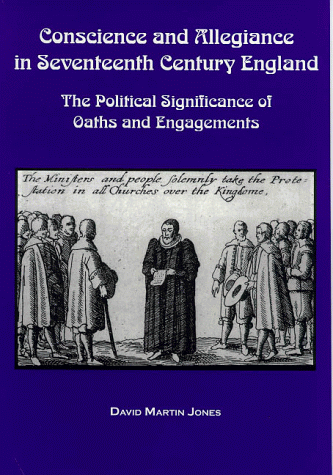This book examines the evolution of a distinctive English practice of conscience and allegiance. From the Reformation onward the English monarchy faced difficulties in policing its claim to obedience in church and state. To address this security problem, the English government promulgated oaths to assess the intensity of popular allegiance. The oath offered interesting political possibilities, both as a device sanctioned by common law and a bond of conscience. In an age increasingly preoccupied by conscience, the oath helped to crystalize a distinctively English understanding of that concept. Yet the state's attempt to foreclose the details of allegiance by oath unintentionallysucceeded in creating a countervailing pressure opposed to its use. Throughout the Tudor-Stuart period, religiously and constitutionally motivated groups objected to state oaths. Responding to their tactics, government apologists defined an official practice of conscience. By the second decade of the seventeenth century, a fully articulated state casuistry demonstrated that lawful oaths indissolubly bound the conscience of the moral subject.Significantly, those who challenged the character of the emerging confessional state, resisted it in terms of a shared vocabulary of conscience and law. In fact, the performative enactment of the oath invited a language game conducted in casuistical terms. Throughout the century and a half that the government experimented with the concept of unconditional allegiance to the person of the monarch, there existed a countervailing tradition that maintained that the crown could be lawfully opposed. The history of the state oath ultimately revealed its inability to provide the indefeasible allegiance that government craved.After 1688, the inability to negotiate an elite consensus facilitated a new moral psychology grounded in the affections and managed by a probable reason. Political practice came to reflect this. As a unitary confessionalism collapsed and the unstable multiple kingdom fused in
- ISBN10 1580460399
- ISBN13 9781580460392
- Publish Date 15 November 1999
- Publish Status Inactive
- Out of Print 23 March 2008
- Publish Country US
- Publisher Boydell & Brewer Ltd
- Imprint University of Rochester Press
- Format Hardcover
- Pages 351
- Language English
